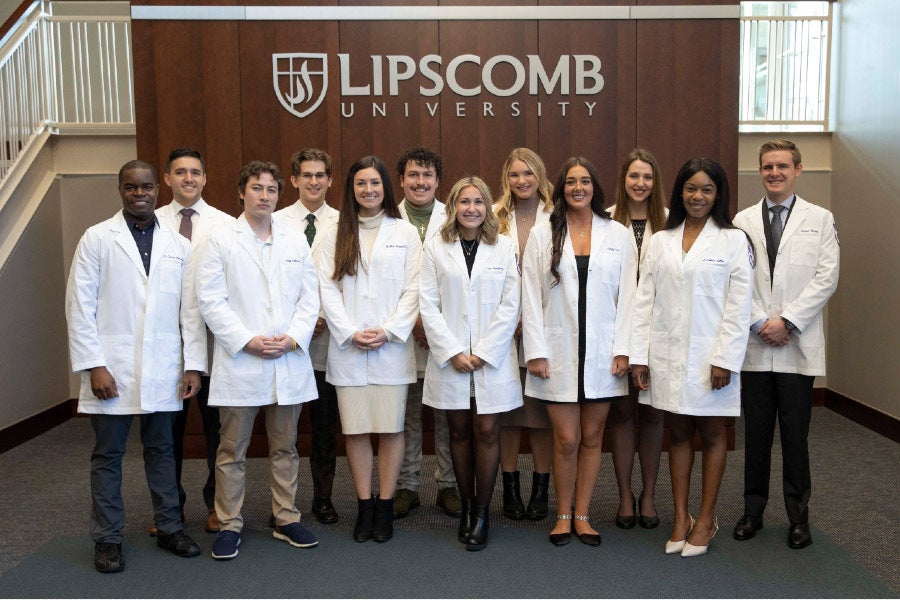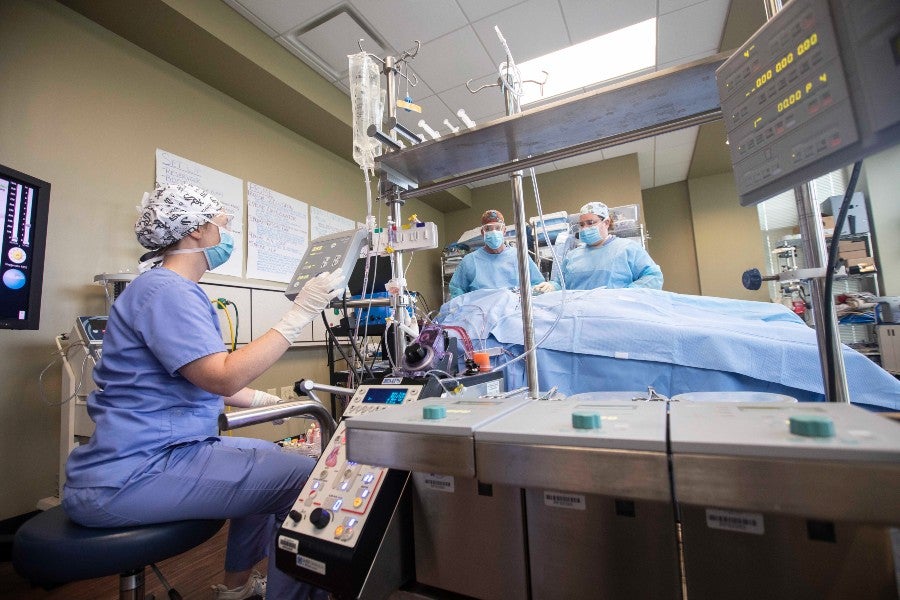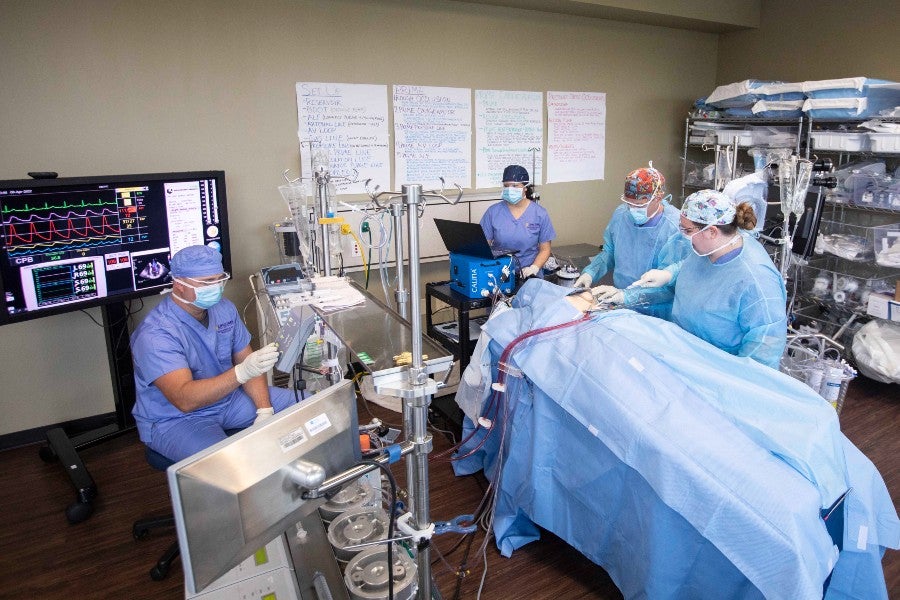Twelve perfusion juniors received white coats in December as first 14 prepare to graduate this May
$1.5 million in donated equipment and 36 clinical sites serve to bring Lipscomb’s first perfusionists into the medical field.
Janel Shoun-Smith | 615.966.7078 |

The Lipscomb cardiovascular perfusion program held its first White Coat Ceremony this December, with the second cohort of 12 students receiving their white coats and celebrating their entrance into on-the-ground, hands-on clinical study.
Since the first cohort began studies in August of 2021, the program has:
- Received more than $1.5 million in donated equipment and consumables to stock the cardiovascular perfusion lab;
- Added two full-time faculty: Simulation Coordinator Chris Yann and Clinical Liaison Edward Evans; three adjunct faculty: Gary Grist, Al Stammers and Kacie Baumgartner; and one staff position: Manager of Student Affairs Nicole Smith.
- Completed a credentialing self-study and site visit working toward an accreditation decision in spring 2023; and
- Partnered with 36 clinical sites, including 6 pediatric sites, throughout the states east of the Mississippi to provide students the opportunity to put into practice the knowledge they have gained in the first year.
These first Lipscomb perfusion students will be among the generation “to change health care in our nation,” said Vice Provost of Health Affairs Dr. Quincy Byrdsong, at December’s White Coat Ceremony, a traditional rite of passage for health science students signifying the beginning of their clinical education, and thus their official entrance into the medical profession.

Without its own on-campus medical center, Lipscomb has developed a comprehensive perfusion simulation laboratory “to prepare our students to excel in the most invasive health care technology,” said David Webb, program director.
Included in the $1.5 million in donated technology are: five heart/lung machines, four autotransfusion devices, four heater/coolers, two ECMO devices, two IABP's, one MPS, one autologous blood therapy device as well as numerous consumables required to operate this equipment.
“There has been an overwhelming outpour from the perfusion community all over the nation in support of our nascent cardiovascular perfusion program,” said Webb. “The overwhelming support is likely due to the significant clinician perfusionist shortage and the fact that we are the only faith-based perfusion program.”
Lipscomb’s 22-month Master of Science in Cardiovascular Perfusion program was established in fall 2021 in response to greater demand for cardiovascular perfusionists, who play a vital role on the cardiac surgical team, ensuring that a patient’s blood continues to flow throughout the body by utilizing artificial pumps during cardiac procedures. That demand was spurred in part due to the Covid-19 pandemic. In addition, at the time of the program’s launch, only 17 schools in the nation offered a perfusion sciences degree.
“The simulation laboratory equipment and supplies support practical training in a low-stakes learning environment,” said Yann. “This training not only fosters development of skills essential to safely managing life-support equipment, but also builds confidence critical for transition to a high-stakes biological setting.”

Once ready for that high-stakes patient environment, students enter clinical rotations, which allows students “to put into practice the academic and laboratory knowledge they amassed during their first year and learn to manage patients on cardiopulmonary bypass,” said Evans.
The sites offering the most opportunities for Lipscomb students are Centennial Medical Center in Nashville; Mt. Sinai Medical Center and Montefiore Medical Center in New York City; Mt. Sinai Medical Center, Sarasota Medical Center, Cleveland Clinic-Martin Memorial and Memorial Regional Medical Center-Joe DiMaggio Children’s in Florida; and Lurie Children's Hospital in Chicago.
Lipscomb students head to these larger cardiac surgery programs to experience hands-on participation in both adult and pediatric clinical cases and to gain experience in bypass, ECMO, mechanical circulatory support and other perfusion-related support services, said Evans.
“Our program has a world-class process for evaluating our students clinically during cardiopulmonary bypass and other perfusion-related activities,” said Evans. “Our students are assessed during all cardiovascular perfusion procedures and other activities throughout the clinical rotation phase.”
“As we aspire towards our vision to be the premier partner for perfusion education in the world, additional growth, and goal achievements are sure to follow,” said Webb, at the student perfusionists White Coat Ceremony.